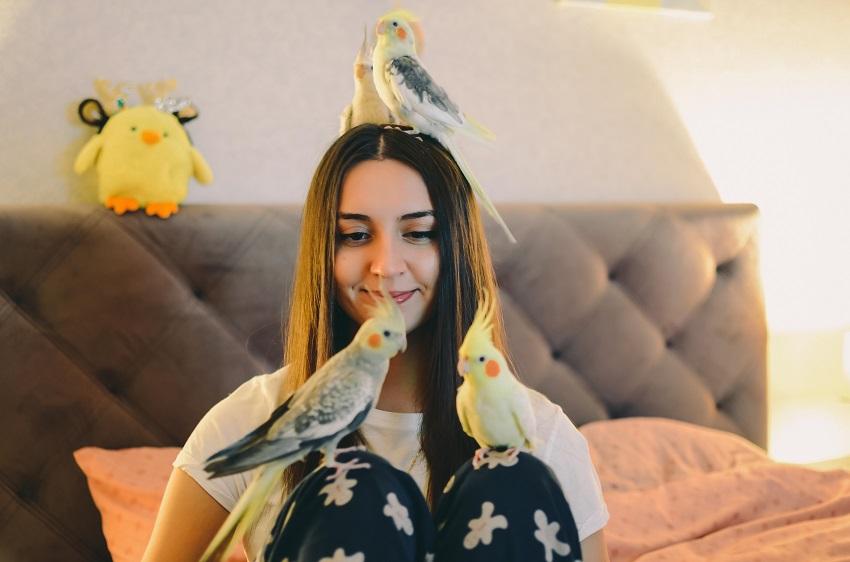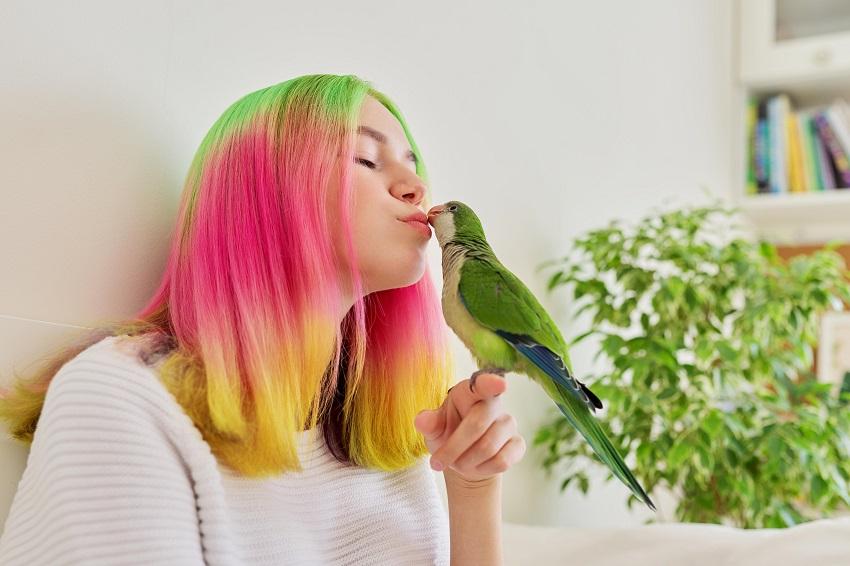Birds are popular pets, often favored alongside dogs, cats, and fish. Birds possess unique charms, from their feathers to melodious chirps, bringing joy and potentially reducing stress for many.
While caring for birds isn’t inherently challenging, certain considerations should be taken into account before bringing them into your home.
Things To be Consider Before Buying a Pet Bird
1. Cage
Owning a pet bird necessitates a suitable cage. When selecting one, opt for spaciousness, allowing the bird ample room to spend the majority of its time. A spacious cage ensures the bird has unrestricted movement.
Additionally, secure the cage with a lock, as birds are intelligent and may attempt to escape without proper security.
2. Cage Placement
Given birds’ sensitivity to temperature and light changes, strategic cage placement is crucial. Position the birdcage in an area exposed to sunlight, enabling the bird to obtain essential Vitamin D.
It’s advisable to avoid placing the birdcage too high or too low. If too high, the bird may feel isolated from those below, while positioning it too low can cause stress.
3. Cage Cleanliness
Maintaining cage cleanliness is essential when keeping birds at home. The cleanliness of the cage directly impacts the bird’s health. Regularly clean crucial parts of the birdcage, such as the bedding, and food and water containers, on a daily basis.
Additionally, thoroughly clean the entire cage with warm water and soap once a week to keep it sanitary.
4. Pet Bird Nutrition
Don’t overlook the importance of providing proper nutrition to your pet bird. A well-balanced diet enhances the bird’s immune system, ensuring its overall health and protecting it from diseases. There are various food options for birds, including fresh fruits, greens, and seeds.
For those uncertain about providing suitable nutrition, PetCoach has categorized it into five types:
- Granivora: Grains, suitable for parakeets.
- Florivora: Grains, fruits, nuts, suitable for parrots and macaws.
- Omnivora: Grains, fruits, insects, suitable for cockatoos.
- Frugivora: Fruits, nuts, grains, suitable for macaws.
- Nectarivora: Grains, pollen, suitable for parrots.
5. Bird Hygiene
Maintaining the hygiene of your bird is crucial. Bathing is an effective way to achieve this. The frequency of bathing depends on the bird’s species, but a general recommendation is to bathe the bird every 2 or 7 days.
Bathing provides numerous benefits, such as reducing stress, promoting bird health, and preventing parasites.
There are various methods of bathing birds, including spraying them with water using a sprayer, placing them in a container, or gently wetting their feathers by stroking, rather than dousing them with water.
Be Cautious of Bird Diseases

It’s essential to recognize signs of illness in birds, as even minor indicators may signal the need for veterinary intervention to prevent worsening conditions. Here are some bird diseases every owner should be aware of to safeguard their feathered companions:
1. Parasitic Infections
Birds, not just cats or dogs, are susceptible to parasitic infections. Vigilance is crucial for spotting symptoms as these diseases pose a significant threat, even to humans. If left untreated, parasitic infections can lead to the bird’s demise.
2. Psittacine Beak and Feather Disease (PBFD)
Caused by a viral infection, PBFD results in abnormal beak and feather growth, lesions, and other health issues. Owners with multiple birds should stay alert to symptoms, as PBFD is highly contagious among birds and other avian species.
3. Bacterial and Fungal Infections
Birds commonly experience bacterial and fungal infections, often stemming from poor hygiene in their surroundings. Stress weakens a bird’s immune system, making it susceptible to bacterial exposure.
Symptoms include itching, redness, and swelling. If a bird is observed excessively pecking at its skin or feathers, consult the nearest veterinarian.
4. Egg Binding
Exclusive to female birds, egg binding is a reproductive issue where a bird cannot naturally lay eggs. Typically caused by an inadequate diet, resulting in a lack of essential vitamins and minerals such as D, E, calcium, and selenium.
Symptoms include abdominal swelling and frequent tail movement. Seek immediate advice from a veterinarian if your female bird exhibits signs of egg binding.
5. Eye Conditions
Issues Birds are prone to various eye conditions, ranging from injuries to infections. Conditions like bacterial conjunctivitis, uveitis (inflammation in the middle layer of the eye or uvea), and cataracts due to vitamin E deficiency can occur.
Owners must regularly assess their bird’s health and ensure daily nutritional requirements.
6. Feather-Plucking Behavioral Disorders
While birds naturally groom themselves by plucking feathers, continuous and excessive plucking leading to self-harm signals a behavioral issue. Factors such as stress, feather mites, skin infections, nutritional deficiencies, and lack of exposure to fresh air and light increase the risk.
To prevent various bird diseases, ensure regular cleaning of the birdcage, provide clean water for self-cleaning, offer proper nutritional intake, and position the cage in a comfortable location.
Enrich your bird’s environment with activities to prevent boredom, mitigating stress-related health issues. Bird ownership requires commitment and seriousness, extending beyond mere novelty.


Comments are closed.